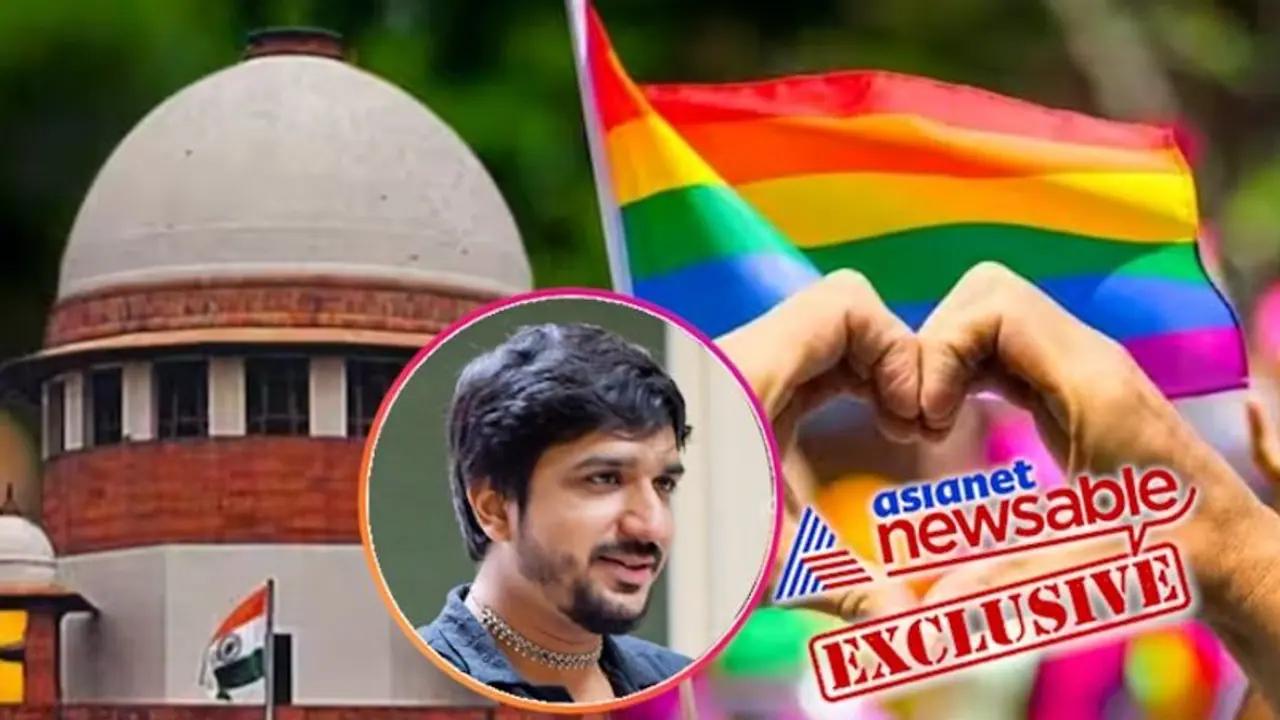Post the judgement of Supreme Court on the Same-Sex Marriage, we talked to Sayed Raza Hussain Zaidi of NAZ International, a sister concern of NAZ India which was instrumental in filing a batch of interventions against the discriminatory, colonial Article 377
The Supreme Court, this morning gave a verdict on petitions filed by transgender activists, same-sex couples and LGBTQIA+ activists that challenged the provisions of the Special Marriage Act 1954, Hindu Marriage Act 1955 and the Foreign Marriage Act 1969. The contention of the petitioners were that the marriage acts in their current form does not recognize non-heterosexual relationships which directly leads to discrimination against LGBTQIA+ communities.

Chief Justice of India Justice D.Y Chandrachud in a 3:2 judgement ruled against giving constitutional validity to same-sex marriages. However during the course of the hearing the SC had mentioned that they will confine the challenge only to SME 1954 as they will not touch any personal laws. Thus, the Hindu Marriage Act was not taken up. However, the court gave directions to the government to form a high level-committee
Asianet Newsable exclusively talked to the 'SOGIESC (Sexual Orientation, Gender Identity, Expression and Sex Characterstics) Consultant for South Asian Countries' Sayed Raza Hussain Zaidi post the verdict.
Here's an excerpt from the Interview:
Q- How will the verdict affect LGBTQIA+ movement in future?
Raza- Personally speaking I had it in my head that this will happen since the Solicitor General kept pushing for this throughout the course of the hearing that it falls under the Parliament's mandate. Well, the judgement was messed up. There was nothing new in the judgement. Even if the Supreme Court spoke for the legality of marriage of transgender people under Hindu Marriage Act if they are in a heterosexual setup as it was already there as read by Madras High Court (in the S. Sushma and ORS v. Commisioner of Police).
But the take away from this judgement was that, especially with the CJI, they were using a lot of inclusive terms. Beyond the judgement, the inclusive language will go a long way to the long road that is ahead of us. Though I personally do not believe in the institution of Marriage which is essentially a patriarchal institution, I do want Queer people to have the right to get married. They should not be discriminated against because of their sexual orientation.
I understand that the Supreme Court is not a body that will make the law, they will only give directive to the parliament. Putting myself in the Government's shoe, I do understand that it will be difficult to be able to include everybody even with the queer community under an umbrella law because there's so much disagreement and denial to partake in identity based politics.
I was hopeful that the Supreme Court will give some sort of time-frame directive to the govenment. We have the general election next year and if there is a change in Government we do not know how they will move forward with the policy but if the same government is re-elected they should carry on with the directives however to re-iterate it's not a time frame directive. I am not very hopeful of the parliament which ever the government is.
Q- What would be NAZ's way forward going ahead from this Judgement?
Raza- NAZ will not go and fight the case in the court on marriage because marriage is a very flawed concept. But we will never oppose it because we believe that if one person want's to get married then they should get married. Our approach will always be a rights based approach.
We do not believe in the institution of marriage because all the acts, no matter under which act you get married in, is patriarchal. Our focus will be more on advocacy, to guide the parliamentary bodies to make them aware of Queer rights and needs while they frame the policies which will eventually be made into laws. So if and when they form an advisory committee, we will be advocating changes in ideologies through those bodies, we will not file a petition in the courts on this.
